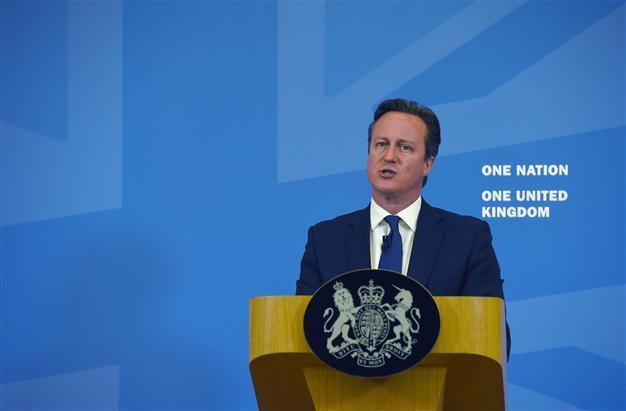UK's Cameron in southeast Asia visit to talk trade, Islamist extremism
LONDON - Reuters

AP photo
British Prime Minister David Cameron said on Sunday he wanted to use a four-day trade mission to southeast Asia to spur lucrative business deals and to forge new political alliances to counter Islamist extremism.The trip, which begins in earnest on Monday, is expected to take in Indonesia, Malaysia, Singapore and Vietnam, and will be Cameron's first outside Europe since he won an unexpectedly convincing election victory in May.
Cameron, who will travel with a business delegation, has touted the visit as an example of how Britain must expand its trade links with the rest of the world to compensate for its dependence on trade with Europe, parts of which remain mired in an economic funk.
He hopes to use the opportunity to renew his image on the world stage after running an unusually parochial election campaign and presiding over a downgrading of Britain's military and diplomatic muscle during his first term in office.
He is expected to discuss the threat from Islamist extremism with President Joko Widodo of Indonesia, and later with Prime Minister Najib Razak of Malaysia.
Around 500 people from Indonesia, which has the world's largest Muslim population, and 200 from Malaysia are believed to have joined the extremists in Iraq and Syria.
Speaking before his departure, Cameron said:
"(Islamic State of Iraq and the Levant) is one of the biggest threats our world has faced. I think Britain can offer expertise on practical counter-terrorism work, dealing with the threat from foreign fighters and investigating potential terrorist plots.
"And I think Britain can learn from Indonesia and Malaysia on the work they have done to tackle the extremist ideology and to build tolerant and resilient societies."
The threat posed by Islamist extremism is high on the political agenda in Britain after an Islamist gunman killed 30 British tourists at a Tunisian beach resort last month.
Britain is already taking part in U.S.-led air strikes on Islamic State of Iraq and the Levant (ISIL) militants in Iraq and Cameron is keen to get parliament's backing later this year to extend those strikes to Syria.
The Sunday Telegraph reported Cameron and his advisers had also discussed what they could do to help defeat Islamist militants in Libya if a stable government there emerged, while The Mail on July 26 said the government had drawn up contingency plans to deploy troops on Britain's streets in the event of an attack by Islamists.
Cameron has said the West faces a generational struggle against what he calls the "death cult" of ISIL.
















